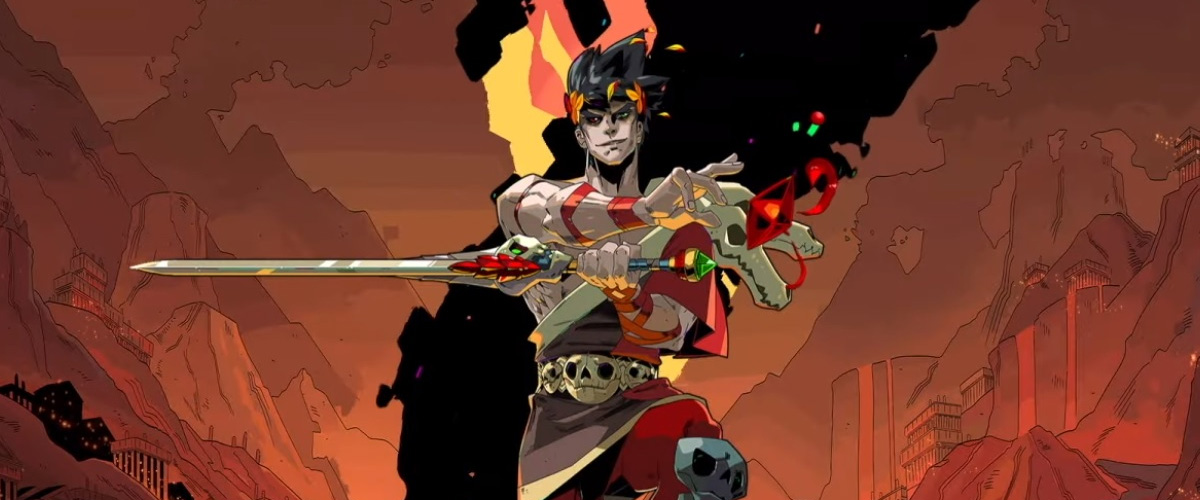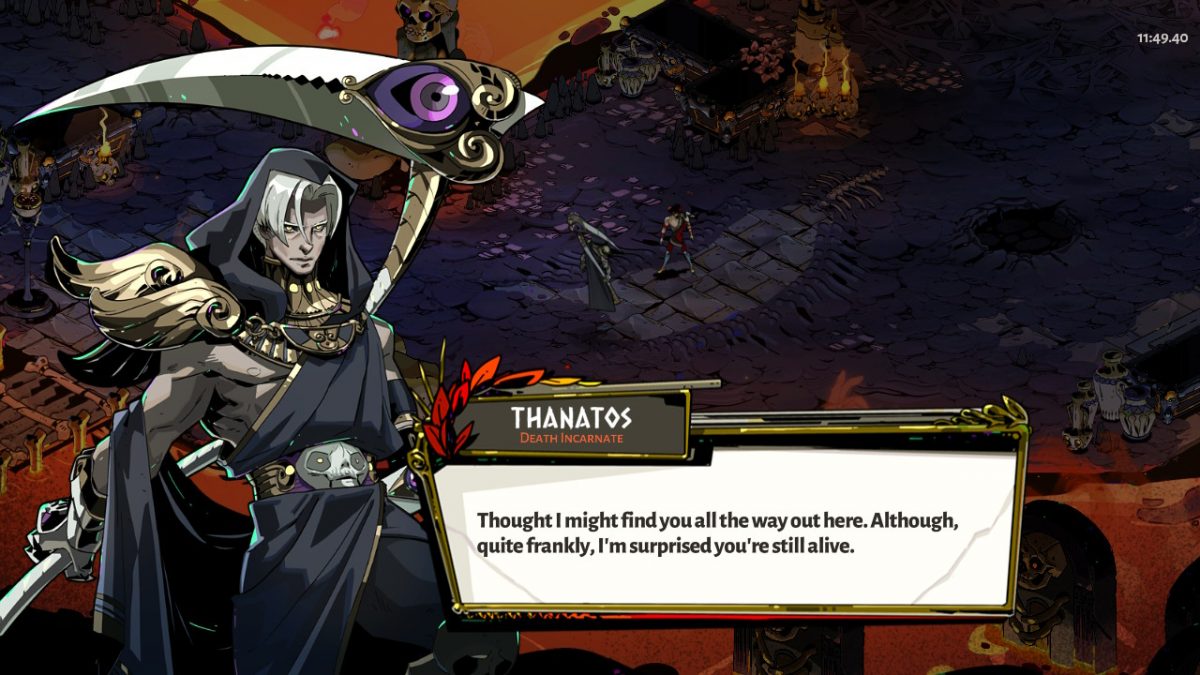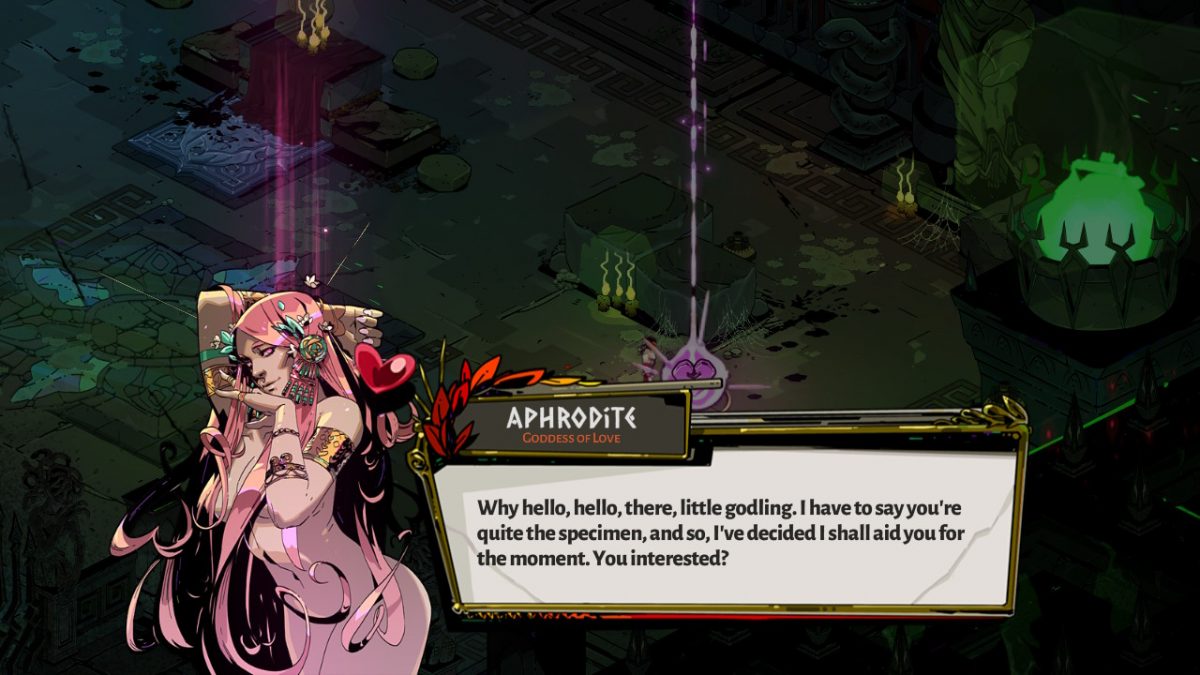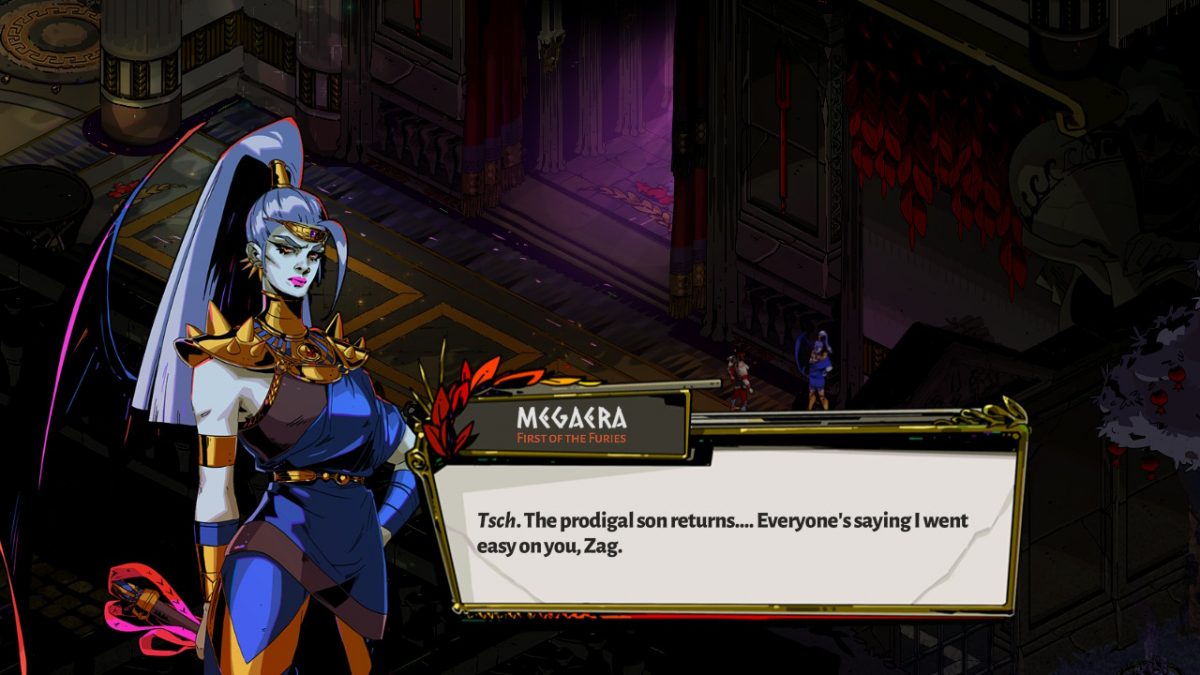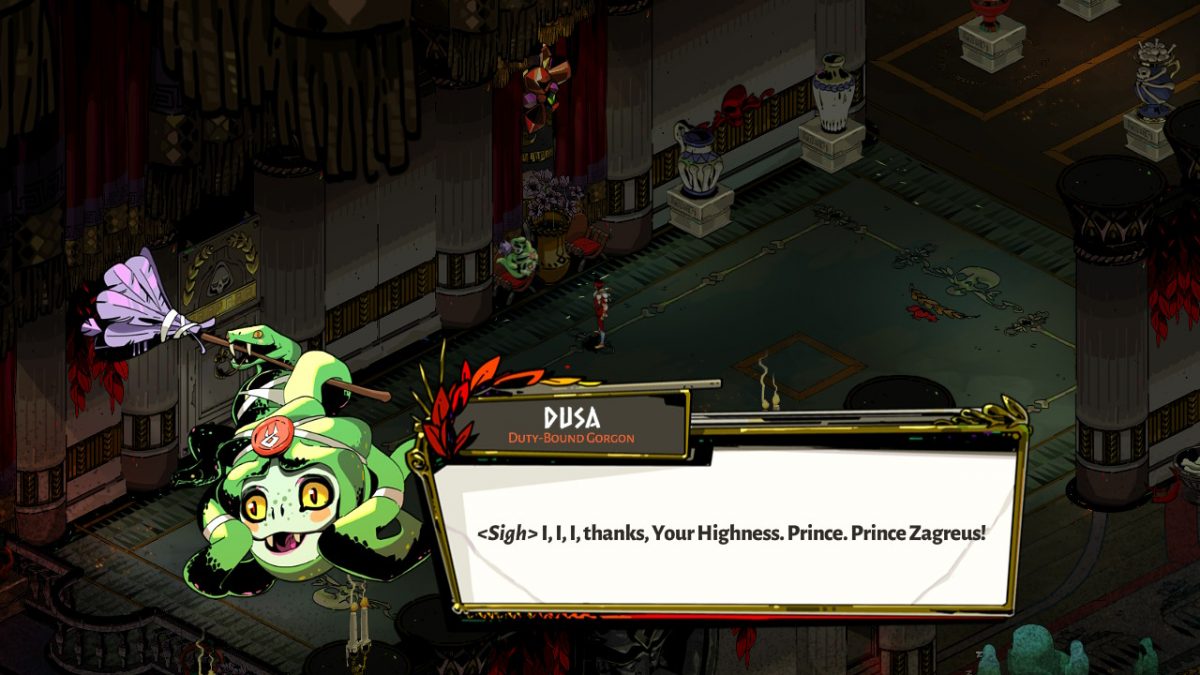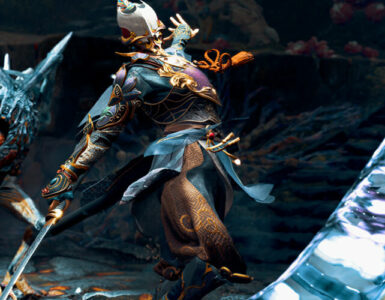If there’s any developer that is synonymous with the independent space in video games, none probably stand out more than Supergiant Games. The California-based studio has been making games since 2009, and broke ground with Bastion in 2011. When small, independent games were still very much in the peripherals of many back then, that little action-RPG entered the rear-view mirrors of many gamers, with its charming narrative and stellar isometric 2.5D visuals.
Since then, the developer has been constantly on the rise with the quality of its titles, while changing things up in terms of dipping its toes in different game genres and themes. This is seen in the likes of 2014’s Transistor (a cyberpunk-themed action RPG) and 2017’s Pyre (a high fantasy party-based RPG). In every game, Supergiant has made it a point to constantly improve its titles and shake things up. For the most part, they have done so relatively well.
Enter Hades, which has just been released after a staggering two years in early access. This rogue-lite game is the culmination of over a decade of experience making games and trying to refine that formula of form, function, and most importantly, fun.
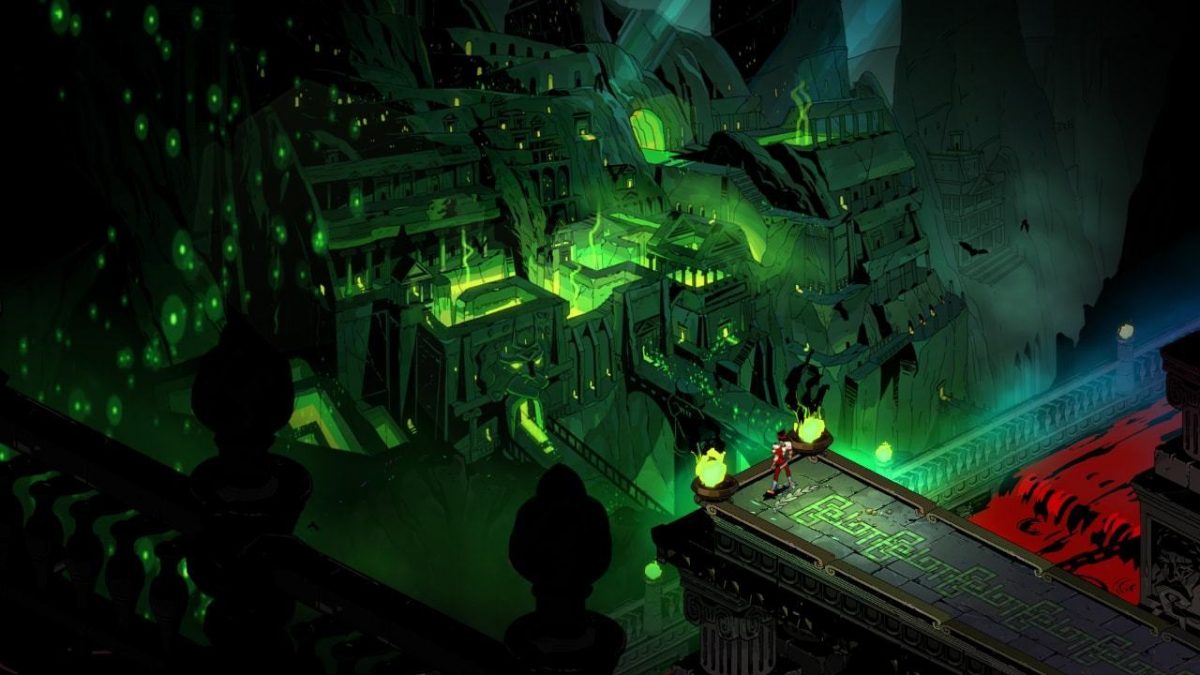
This time, the game takes on the form of a rogue-lite, and puts players in the shoes of Zagreus, Prince of the Underworld and son to the titular god of the dead, Hades. Zagreus has to fight his way up from the depths of hell to the surface world, in an attempt to escape the mundanity and monotony of his current life, as well as to find out the truth about his heritage. Along the way, Zagreus is aided by the rest of the gods presiding on Mount Olympus, as well as some of those that live with him back in hell.
Story-wise, it’s as simple as it gets, but is backed up and fleshed out by some really solid world-building (to be fair, Supergiant had the entire pantheon of Ancient Greece at its disposal). Also, it’s backed up by a stellar cast of supporting characters that each have their own histories with Zagreus, as well as their own backstories that, though can be technically Googled conveniently, are embellished with Supergiant’s crisp and engaging narrative twists. And Zagreus himself is extremely affable as the main protagonist, with his steely determination meshing really well with his young and brash personality, and is someone who you’d want to root for, as he picks himself back up after every failed escape attempt.
Though Supergiant Games is known for its elegant and vibrant 2.5D visuals, Hades takes it one step further. This game is pretty, even on the tiny 720p display on the Nintendo Switch, and even if it is literally the darkest game in the developer’s history. Never has Hell and its various locales looked this good in 2.5D. From the dull, grey, angular depths of Tartarus, to the harsh, lava-filled rivers of Asphodel, to the vibrant, breathtaking valleys of Elysium, players are given an absolute treat each time they enter each zone.
And how can we talk about a Supergiant game without discussing its sound design and music? Where the superb storytelling and writing are the heart, the gorgeous art style the bones, then the music is the soul of this game. This is thanks to the immaculate score by Supergiant composer Darren Korb. From the sombre sitar welcoming you with every death in the House of Hades, to the death metal-charged battle tunes fueling every boss battle, there’s never a dull moment in Hades as Zagreus trudges through the Underworld.
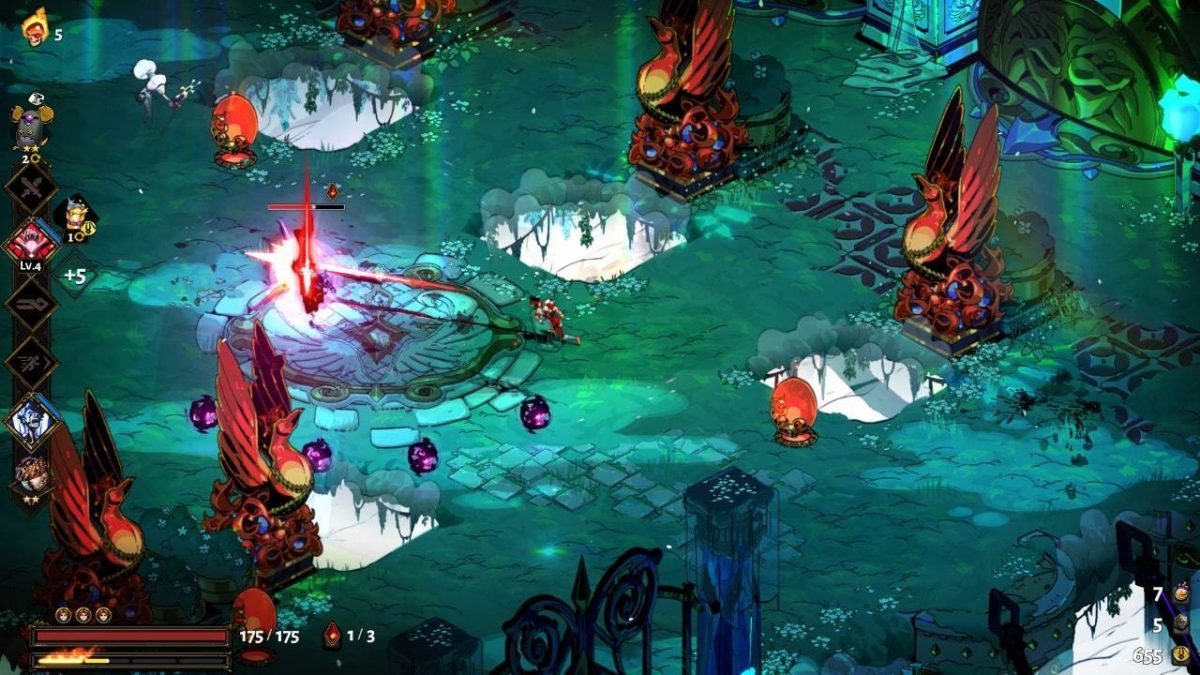
Each main and supporting character has been given equal love in terms of art. All characters that appear in the visual novel-style dialogue scenes are given their own illustration, and their essence is captured perfectly with Korb himself actually lending his voice as Zagreus in a superb performance. Their accompanying voice actors really hit home their colourful and loveable personalities, and it shows just how well Supergiant has done in both staffing its talented art team and sourcing the voice cast. We won’t be surprised if there’s a fanbase for every character in this game.
As a rogue-lite, Hades simply nails it, both in story and gameplay. As a god, Zagreus has the ability to die after succumbing in every escape attempt, come back from the dead, and try again. But of course, he has to start over from scratch, including accumulating most bonuses, boons and coins that he has collected along the way, which makes sense given how being sent back to his home means he is also stripped of whatever progress he made in his attempt to scale the Underworld.
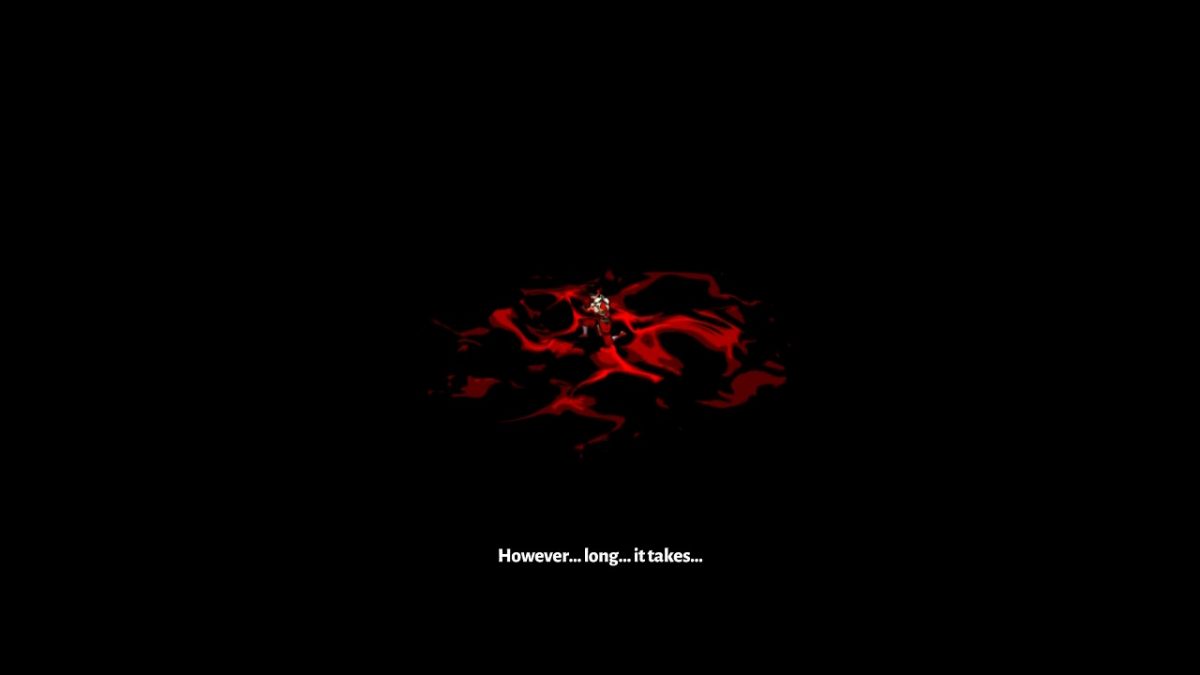
And with every new attempt, the layout of each of the four zones is completely changed, with different sets of enemies and rewards awaiting at every door. And players try and try again until they have completed all three zones and bested all four main bosses of the game.
This sounds like an absolute chore, but it’s far, far from that. This is thanks to simply how good the combat in Hades is. Of all the games Supergiant has put out this far, this one offers the most satisfying adrenaline rush. As Zagreus, players have to skilfully dart and weave their way around and through enemy ranks, slicing and dicing their way to survive each room. Utilising one of six Infernal Arms, a ranged cast ability, and the occasional (and powerful) Call ability, and the ever-reliable dash ability, players are given a host of active abilities to survive encounters and boss battles to the best of their abilities. If Santa Monica Studio’s God of War had an indie counterpart, this would be it.
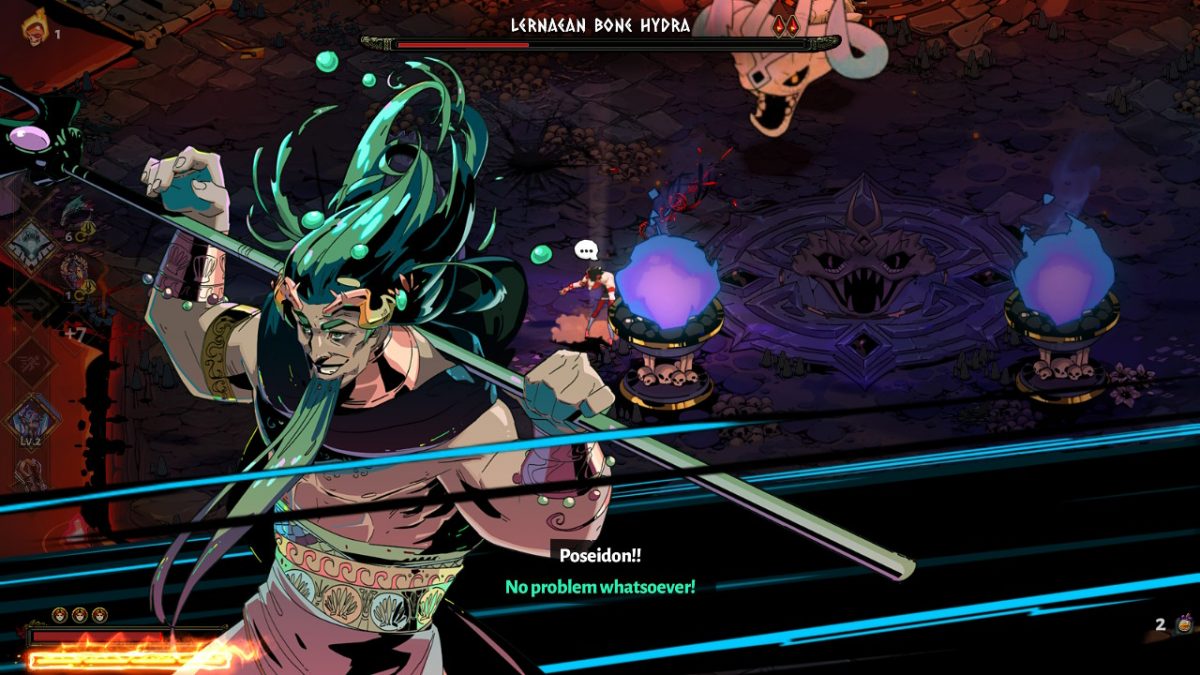
At the start of each run, players have to pick an Infernal Arm with which to try and complete their run. From the Stygian Blade, that promotes a balanced fighting style, to the Shield of Chaos, that lets players fling bouncing shields around a la Captain America; from the Twin Fists of Malphon that lets one bash heads in to kingdom come, and to even the Adamant Railgun that turns this game into a pseudo-bullet hell each weapon handles and plays really distinctly from one another.
Not only that, the various God Boons and Daedalus Hammer upgrades that one acquires in certain rooms bequeath additional passive bonuses that confer special bonuses that can even potentially change up the way one uses their Infernal Arm. Given how each god grants a whole different set of Boons for each weapon, there is virtually no limit to how one can slowly build their skillset as they progress through each run. And as if that wasn’t enough, a random weapon will glow purple that confers a bonus to Darkness acquired, as a really nice way to encourage players to try out different weapons.
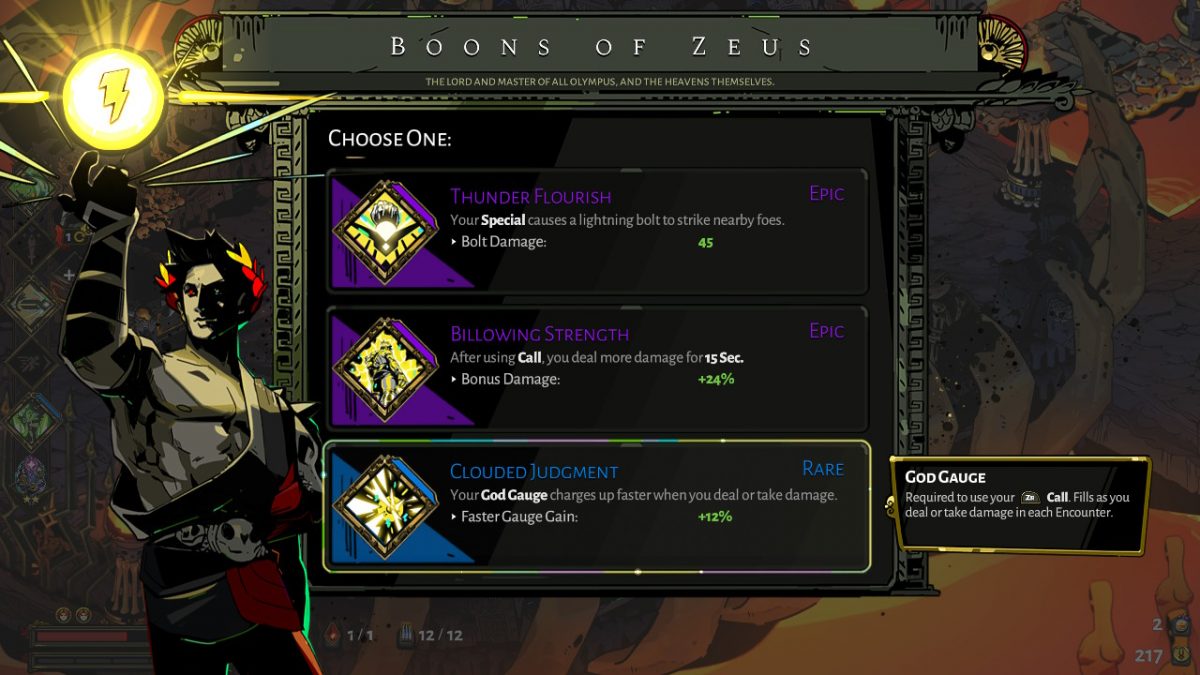
That said, due to the randomness of each room and the randomness of three god boons to pick from at a time, players may end up with too wide a spread of bonuses that may not necessarily synergise with one another at times. This RNG-based aspect of the game is, sadly, out of players’ control, and could spell victory or defeat, though skilled players can really make the most out of what they’re given. One way to get around this, if players are dissatisfied with their bonuses, is to simply give up their current run and try again, though there really isn’t any reason why one shouldn’t just try to go as far as they can.
That’s because Hades isn’t the most punishing rogue-lite in the genre. One of several constants that remains with every new run is the various Artifact currencies Zagreus gets from every run. These include Darkness, which lets players upgrade passive bonuses at the Mirror of Night located in Zagreus’ quarters; Chthonic Keys, which unlock new Infernal Arms at the Arsenal Room; and Gems, which can be used to purchase renovation upgrades from the House Contractor that can also confer better quality of life during subsequent runs such as the chance to spawn a room that heals Zagreus, and the like. There is also Titan Blood, which lets players upgrade each weapon by unlocking four tiers of Aspects, that confer more powerful passive bonuses. And there is also Nectar, which can be given to the various NPCs that will give you Keepsakes, equippable items that bestow additional passive bonuses.
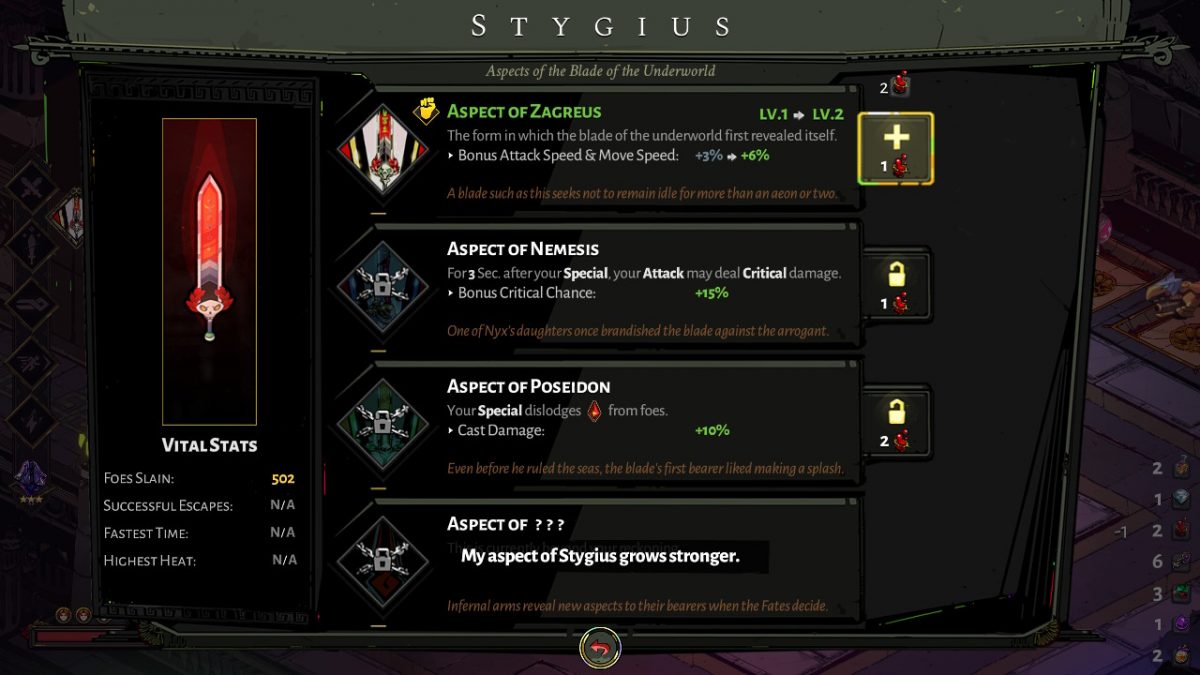
If you haven’t caught on yet, Hades actually gets much easier the more you play, unlike true rogue-like games, where players literally start with a clean slate in each run and have to get by through sheer skill alone, players will get passively stronger in this game. This makes it much more accessible to players who are typically not as skilled in real-time action RPGs.
Don’t get us wrong, though, this is still a tough game, but it ultimately retains Supergiant Games’ DNA of tying in the narrative with the gameplay. You’re meant to finish this in a couple of hours, and see the ending all the way through. Fret not, hardcore players, as there are options with which to spice up the gameplay considerably after beating it for the first time. Additionally, the more time you spend trying (and dying) with each run, you’ll quickly find that not only the enemies and rewards change each time, but also the bosses get their own little subtle, yet impactful changes. One run, the Bone Hydra boss could be shooting needle-like projectiles, but the next, it could be setting the room ablaze with timed explosives. Still the same snakelike baddie you’ll need to beat, but deadly in a slightly different way.
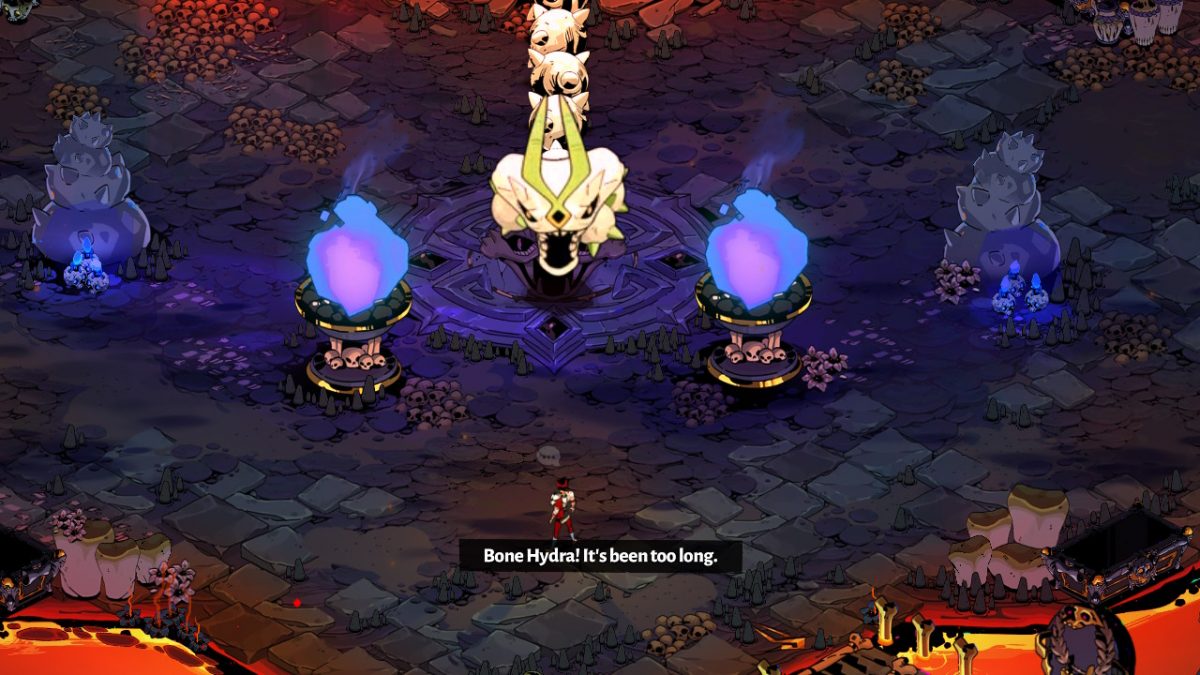
Additionally, this game is almost tailor-made for the Nintendo Switch. Sure, while it’s definitely playable on PC and Mac, its 15-to-60-minute runs make it perfect for the pick-up-and-play nature of the hybrid handheld console. Also the controls run perfectly on the Switch, and will have you engaged on it for hours on end by accident, even though you know you’re only supposed to play for a couple of minutes.

Like how Zagreus exudes ambition, it might seem a little ambitious to call this title Supergiant Games’ magnum opus… but it is (so far, at least). Through its breathtaking 2.5D visuals, scintillating combat, and deeply addictive gameplay loop, it’s really hard to imagine that all this content is packed into just US$24.90 on the Nintendo Eshop (S$22 on Steam if you’re playing it on PC/Mac).
There is no reason why you shouldn’t get Hades, even if action RPGs aren’t your thing; just experiencing this romp through hell is definitely something to die for, and for all the right reasons.
GEEK REVIEW SCORE
Summary
Supergiant Games has successfully punched above its weight with Hades. As a rogue-lite, it ticks all the boxes of what makes a great entry in the genre, while retaining the same charm that the devs have been so beloved for. If you haven’t played Hades yet, you’re missing out.
Overall
9.6/10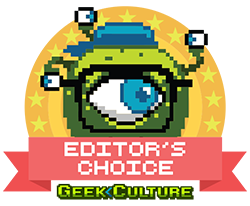
-
Gameplay - 9.5/10
9.5/10
-
Story - 9/10
9/10
-
Presentation - 10/10
10/10
-
Value - 10/10
10/10
User Review
( votes)Marion has a serious RPG addiction. Sometimes it bleeds into real life; he forgets to sleep because he thinks he has a Witcher’s body clock. Forgive him in advance if he suddenly blurts out terms such as “Mind Flayer” and “Magic Missile”, because never once does he stop thinking about his next Dungeons & Dragons game.

